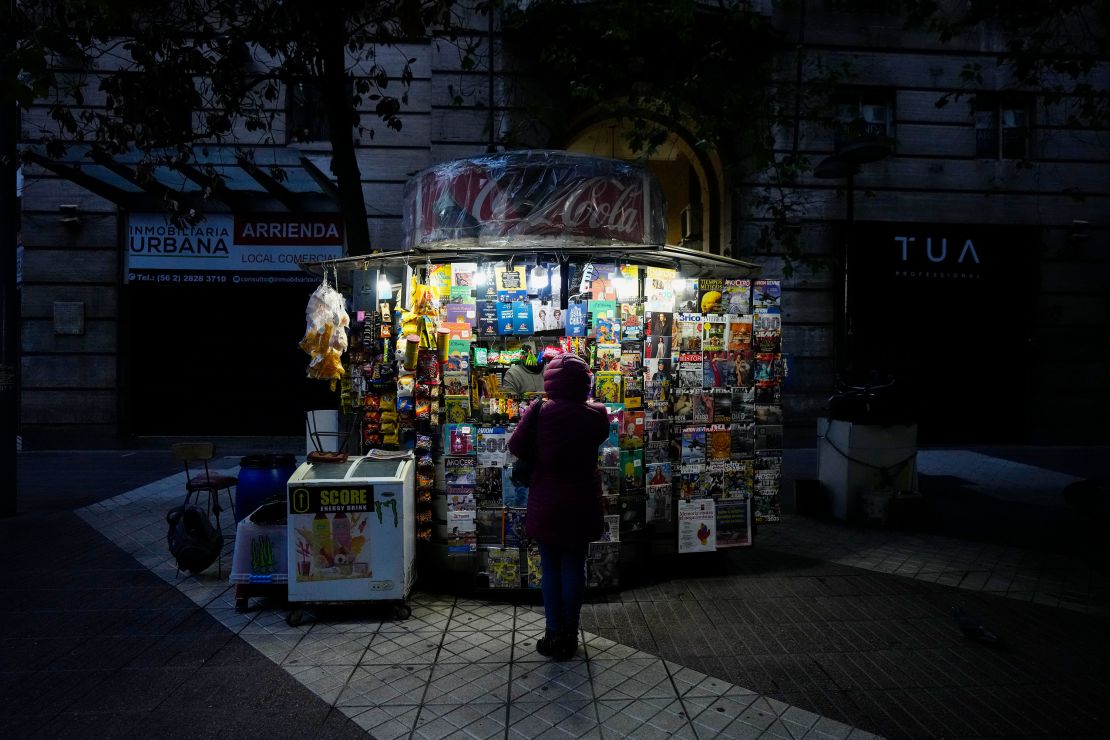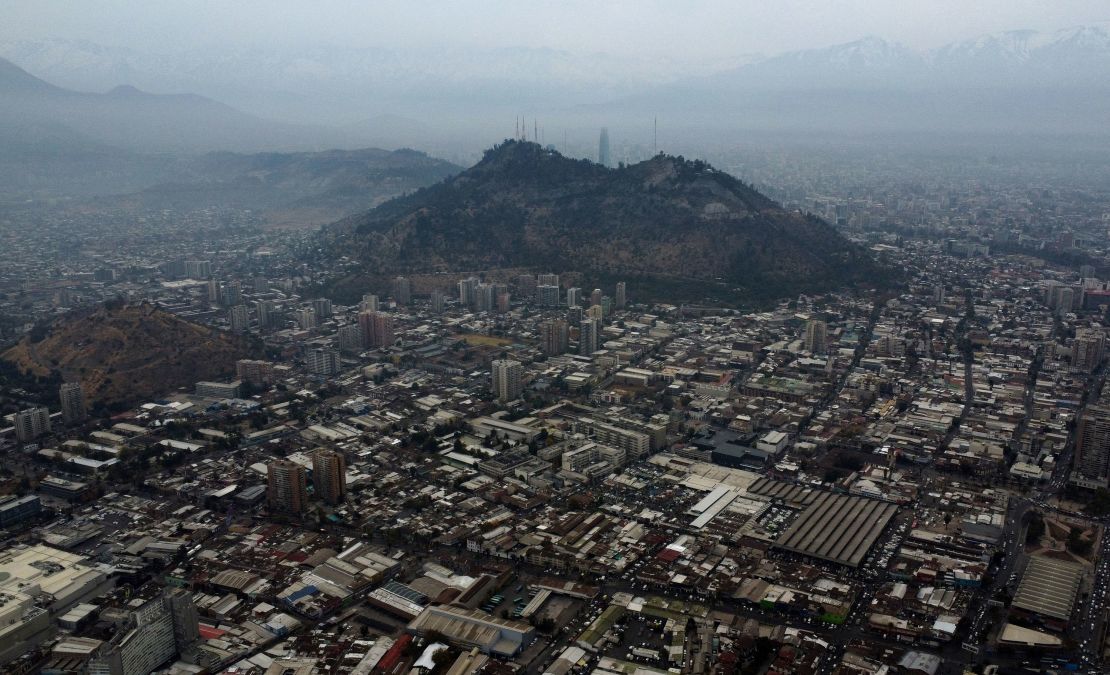Bundled-up mannequins stand in the storefronts on the main shopping avenues off Santiago’s central Plaza de Armas. Straphangers at bus stops clutch steaming coffees and huddle for warmth. On the horizon, views of the Andes are as spectacular as ever, their snow-capped peaks gleaming extra bright after an early-season storm.
Santiago is under a record freeze. After an eight-day “cold wave” pushed through the capital region this week, the average temperature for May dropped to 37 degrees Fahrenheit (2 degrees Celsius) – the coldest since 1950, according to Angélica Guzáman, a meteorologist with the Chilean Meteorologic Directorate.
Thursday marked the coldest day of the year so far, with one weather station notching a frosty 30 degrees.
“You have to go out dressed in double layers,” said Rosita Moya, a publicist who spoke with CNN on a frigid Friday morning, the fur-lined hood of her parka turned up. “I had to go searching for my hat.”
Chileans are used to the cold, but not this early in the year. A typical May?in Santiago?reaches a balmy high of 64 degrees, dipping down to 43 degrees at night. The brunt of the winter arrives in July, when the average low is down to 37 degrees.
A mass of cold air that will last through the weekend is behind the strange forecast, Guzáman said, with below-average temperatures expected to continue.
Authorities have declared a “code blue” throughout the country, opening additional shelters and services for homeless populations.
“We’ve got to be prepared: warm clothes, closed shoes, protection for your hands. Watch the parts of your body that are more exposed, we need to cover them up,” a radio announcer warned on a broadcast Thursday night.


Zipped tight in a puffer by the central La Vega market, Diamira Salas sipped a warm quinoa drink spiced with brown sugar and pineapple that she’d just bought from a street cart, the kind of goopy, stick-to-your-bones beverage perfect to beat back a morning chill.
“It has natural protein and in this cold weather it gives you calories,” Salas, a nurse, said.
Other Santiaguinos have been less thoughtful with their cold-weather diets. “The chocolates are selling, the cookies are selling, lots of coffee,” said Nancy Mujica, who runs a magazine kiosk in the Bellas Artes neighborhood.
At Santo Tisla’s fruit and vegetable stand, the cold has been bad for business. Grapes are freezing into chunks of ice, and when customers stick their hands out to test produce: “Ah! It’s very cold,” Tisla mimicked, recoiling his ungloved hand.
Still, as the seasons change and the tree-lined boulevards start to find their first orange hues of the year, life marches forward in chilly Santiago.
After work Thursday, the retractable-ID-badge crowd gathered as usual for a happy-hour pisco on the sidewalk bars of the posh Lastarria neighborhood. As blue-flamed heat lamps glowed nearby, a street performer in drag sauntered back and forth to blaring Latin pop.
Her costume - a skimpy, spangly two-piece - was mostly covered up, except during the high points of the song, when she shed her fleece and draped it over her shoulder with a twirl.


